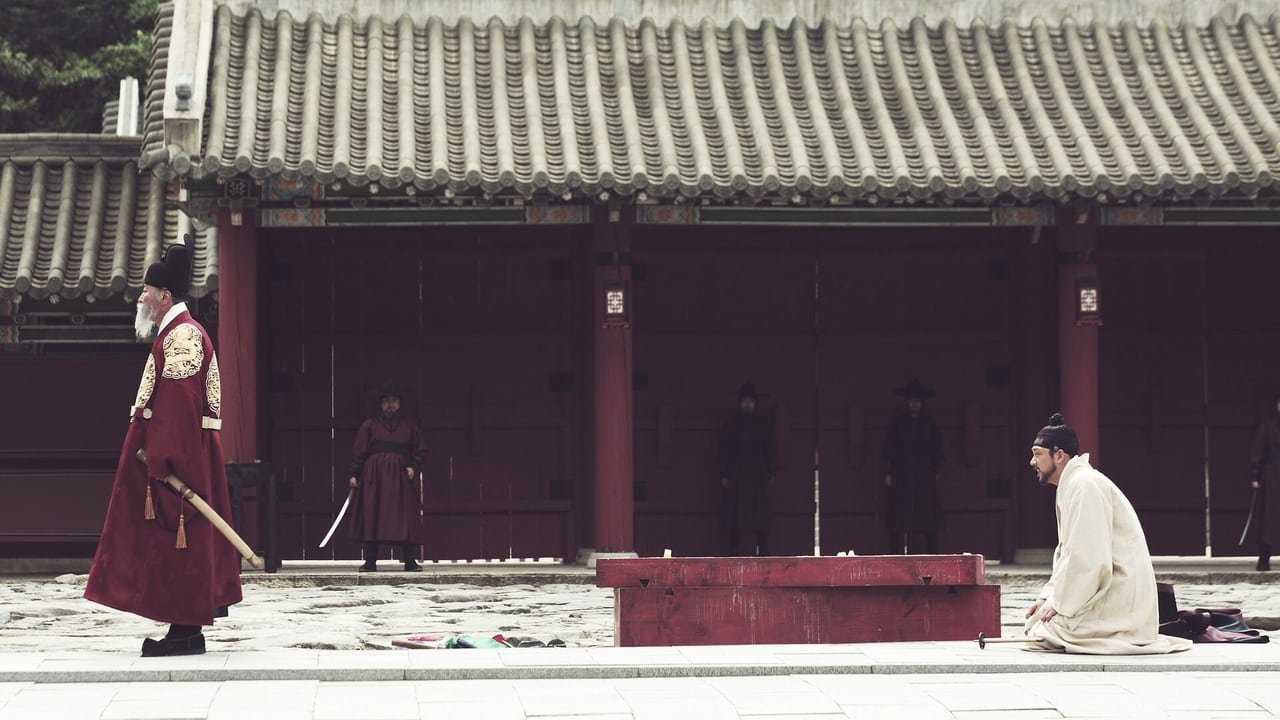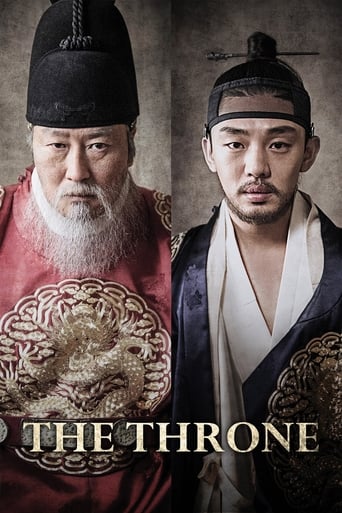

Good , But It Is Overrated By Some
... View MoreAlthough it has its amusing moments, in eneral the plot does not convince.
... View MoreGreat movie. Not sure what people expected but I found it highly entertaining.
... View MoreThere's no way I can possibly love it entirely but I just think its ridiculously bad, but enjoyable at the same time.
... View MoreThe film is essentially a portrayal of a power struggle between a narcissistic father and his emotionally abused son, who naively strives to earn his father's love and admiration, but rebels against his father once he realizes that he can never please his father nor truly earn his respect. At every opportunity, the king-father publicly belittles and humiliates his son before his governing subjects, making the regent-son question his own self-worth. The king even goes to the extent of revealing to his son that he considers his own son to be an enemy, when they take a stroll through their ancestral burial/worship place. The king, finally realizing that he cannot fully control his son, replaces his rebelling son with his younger grand child, whom he can easily manipulate and control. The old king gives up his throne only after his death. The power-hungriness, contempt, violence, and the narcissistic need to subjugate and humiliate is made quite evident in the interactions of the king with his son. It was also interesting to see the conniving enablers in the court always trying to please the authoritative figure and not standing up to him. The apparent powerlessness and pathetic inability to stand-up to the oppressive figure in the victims as well as the enablers are quite striking. All in all, the movie provides a great insight to narcissistic relationships.
... View MoreBy 1762, the Joseon dynasty in Korea has been in power for about 300 years, and it's managed to stay in power that long through a mixture of Confucian disciplinary skills amongst the functionaries and adherence to strict codes of behavior and style in the court. Yeongjo (Song Kang-ho) has been King for decades; his son by a concubine, Sado (Yoo Ah-in) is the Crown Prince but he doesn't follow the Confucian teachings (in fact, he hates to study at all) and doesn't adhere to behavioral norms either. When, in a fit of madness, he decides to assassinate his father, his plot is foiled and the King, unable to accuse him of high treason because that would place the dynasty in peril, decides to name him a commoner and condemn him to death. A terrible death, though, one in which the Crown Prince is placed in a sealed wooden box and left in the hot sun to slowly die of thirst and hunger. As the days pass, the story of how such a thing came to pass is told in a series of flashbacks, detailing the tragedy of this royal family . This film is based on a true incident in Korean history, one that is of huge importance in that culture because of all the social resonance it encompasses. The film is beautifully created, with sumptuous costumes and gorgeous vistas, and both lead actors are convincing in their roles. But, well, the story comes across as quite sentimental and melodramatic (just about all the various women do in the film is weep silently, although there is a memorable scene with the Dowager Queen late in the film), and frankly, at 125 minutes, it's just way longer than it needed to be. In particular, the last 10-15 minutes are quite pointless, at least to someone who is not Korean and thus doesn't have the cultural or historical background to appreciate it. I liked it overall, but it could have done with some judicious editing, I think.
... View MoreThis is a bit of a draw out movie but isn't really a slow burner movie. The pacing of it had my attention most of the way through, but after the first hour it started to get a bit stale. I did appreciate the well crafted cinematography and for it now being a amateurish movie. With bunch of corny slapstick comedy thrown in to entertain the audiences. This is a historical film based on a true story about a prince that was ordered to get locked inside a confide space until he died. Because the king didn't find his son to be worthy of the position of being king and looked forward to his grandson taking his place instead. Mainly because the son was more interested in being free and art over order and studying. Which actually seems quite familiar to the dysfunctional aspects of most families these days. With the son or daughter rebelling against the parents and the parents forcing their belief down their child's throat. The acting for the most part is superb in this and it really makes some of the drawn out scenes very watchable. So, the beginning shows the prince getting locked up and from their on it goes from flashback to flashback on how the prince lost the favor from the king and what lead to that point. This isn't a action packed historical movie with swords and arrows flying everywhere, as a matter of fact there is almost none of that. As a matter of fact there is not even a villain that causes turmoil in the kingdom. Instead it's a historical drama about the fall of a prince and how what could have been easily avoided didn't work out because of stubborn attitude and grudge. Despite the drawn out aspect of this movie the build up for the most part had some tension to it. Overall this is a film worth checking out, at least once if you like historical dramas.7.9/10
... View MoreI walked into this film, with the extent of my knowledge being the drawn portraits of Prince Sado and King Yeongjo floating around google images. By the time I left the cinema, I felt I've become close companions with these men.There is a tragically mesmerizing direction Lee Joon Ik accomplishes in his intimate insight into the Royal family. It is difficult to project the arduous politics of the kingdom in a way which doesn't diminish the drama, but heightens its emotional punch. Believe me, it's quite a punch. A series of flashbacks investigates how the relationship between King Yeongjo and his son, Crown Prince Sado deteriorates. Essentially showing how a once proud father can condemn his son to a brutal punishment. It's a wonderful piece of film editing, gripping the viewers to a claustrophobic degree as we witness Sado's sufferings, while never losing interest in the family's origins whenever the film jumps back a few years or so. Perhaps, the greatest element of this film is undoubtedly it's ability to depict deceased historical figures with a brooding complexity and vibrance. Particularly, Yoo Ah In's portrayal of Sado is captivating in its depiction of the man's compassion, thirst for freedom and his eventual conflicted psyche. Never is there once a hint of a stereotypical, one dimensional, cold blooded lunatic. No. This is an incredible portrayal of a human being, as these historical figures were. The inability to emphasize with and encourage others is a fault exposed here. This is how the film transcends from a dramatic period piece to a work of art which deeply resonates in families caught in strife. It truly is an absorbing insight into life between the palace walls during the height of familial tension, boasting an emotional prowess that would tingle within you for some time. A masterpiece has been extracted from this segment of history.
... View More